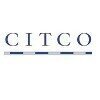Fund Accountant
60+ Fund Accountant Interview Questions and Answers

Asked in Morgan Stanley

Q. What was the journal entry for prepaid rent which has paid at beginning of the month for the whole year and entry at the end of month ?? Which is entry affects the networth??
Journal entry for prepaid rent paid at beginning and end of month affecting net worth.
Debit prepaid rent account for the full amount paid at the beginning of the month
Credit cash account for the same amount
At the end of the month, debit rent expense account for the portion of rent used during the month
Credit prepaid rent account for the same amount
The entry at the end of the month affects the net worth as it reduces the prepaid rent asset and increases the rent expense
Example...read more

Asked in Morgan Stanley

Q. What is the journal entry for shares purchased today that will be credited to the Demat account on T+2?
The entry for share purchased today credited into demat on T+2 is a debit to the cash account and a credit to the demat account.
Debit cash account
Credit demat account
Occurs on T+2
Reflects purchase of shares
Fund Accountant Interview Questions and Answers for Freshers

Asked in Morgan Stanley

Q. What impact do share price have on issue of dividend ? And what was the reason behind it?
The share price has an impact on the issue of dividends as it affects the dividend yield and the amount of cash paid out to shareholders.
Share price affects the dividend yield, which is calculated by dividing the annual dividend per share by the share price.
A higher share price reduces the dividend yield, making the stock less attractive to income-seeking investors.
Share price also affects the amount of cash paid out as dividends. A higher share price may result in a lower di...read more

Asked in State Street Corporation

Q. What you find interesting about state Street corporation? What is the majore reason to choose state street corp
State Street Corporation is a leading financial services company known for its global presence and expertise in asset management and custody services.
State Street Corporation is one of the largest custodian banks in the world, providing services to institutional investors and asset managers.
The company has a strong global presence with offices in over 100 locations worldwide.
State Street is known for its expertise in asset management, offering a wide range of investment solut...read more

Asked in Morgan Stanley

Q. What is the technical term for bond interest?
The technical term for bond interest is coupon rate.
Coupon rate is the fixed annual interest rate paid on a bond.
It is expressed as a percentage of the bond's face value.
For example, a bond with a face value of $1000 and a coupon rate of 5% will pay $50 in interest annually.
Coupon payments are usually made semi-annually or quarterly.

Asked in State Street Corporation

Q. What is asset and liability? What are subcategories and formula to determine asset and liability?
Assets are resources owned by a company, while liabilities are obligations or debts. They have subcategories and formulas to determine their values.
Assets are economic resources that provide future benefits to a company, such as cash, inventory, or property.
Liabilities are obligations or debts that a company owes to external parties, such as loans or accounts payable.
Subcategories of assets include current assets (e.g., cash, accounts receivable) and non-current assets (e.g.,...read more
Fund Accountant Jobs




Asked in Citco

Q. 1) What is hedge fund? 2) What is IRR and formula? 3) Journal entry for Accrual and Prepaid?
Fund Accountant interview questions on hedge funds, IRR formula, and journal entries for accrual and prepaid.
Hedge fund is an investment fund that pools capital from accredited individuals or institutional investors and invests in a variety of assets.
IRR (Internal Rate of Return) is a metric used to measure the profitability of an investment. Formula: NPV = 0 = CF0 + CF1 / (1 + IRR) + CF2 / (1 + IRR)^2 + ... + CFn / (1 + IRR)^n
Journal entry for accrual: Debit expense account,...read more

Asked in Morgan Stanley

Q. Why does the RBI increase the Repo rate to control inflation?
RBI increases Repo rate to control inflation by reducing money supply and increasing cost of borrowing.
Repo rate is the rate at which RBI lends money to commercial banks.
When RBI increases Repo rate, it becomes expensive for banks to borrow money from RBI.
Banks then increase their lending rates to customers, which reduces borrowing and spending.
This reduces money supply in the economy, which helps in controlling inflation.
For example, if inflation is high, RBI may increase Re...read more
Share interview questions and help millions of jobseekers 🌟


Asked in Morgan Stanley

Q. What is the difference between options and futures?
Options give the right but not the obligation to buy or sell an asset at a predetermined price, while futures require the buyer or seller to fulfill the contract at a specific date and price.
Options provide flexibility to the buyer as they can choose whether or not to exercise the option, while futures require the buyer or seller to fulfill the contract.
Options have a premium that the buyer pays to the seller for the right to buy or sell the asset, while futures do not have a...read more

Asked in State Street Corporation

Q. What do you know about management fees and performance fees?
Management fees and performance fees are charges levied by investment managers for managing funds and achieving certain performance benchmarks.
Management fees are ongoing charges that cover the cost of managing the fund, including administrative expenses, research, and investment management.
Performance fees are additional charges based on the fund's performance relative to a benchmark or a predetermined hurdle rate.
Management fees are typically calculated as a percentage of t...read more

Asked in State Street Corporation

Q. What is capstock? Explain subscription and resumption
Capstock refers to the total value of a company's outstanding shares of stock.
Capstock is the market value of a company's equity capital.
It represents the total value of all the company's shares of stock.
Capstock can be calculated by multiplying the current market price per share by the total number of outstanding shares.
It is an important metric for investors and analysts to assess the overall value of a company.
Subscription refers to the process of purchasing new shares of ...read more

Asked in State Street Corporation

Q. What is NAV calculation, how to calculate NAV?
NAV calculation is the process of determining the net asset value of a fund, which represents the value per share/unit.
NAV is calculated by subtracting the fund's liabilities from its assets.
Assets include investments, cash, and receivables, while liabilities include expenses and payables.
NAV = (Total Assets - Total Liabilities) / Total Shares/Units Outstanding.
NAV is typically calculated on a daily basis for mutual funds and other investment vehicles.
Example: If a fund has $...read more

Asked in Citco

Q. 4) What is retained earnings? 5) What is capitalisation of interest ?
Retained earnings are the portion of a company's profits that are kept by the company instead of being distributed as dividends.
Retained earnings are a measure of a company's financial health and its ability to reinvest in itself.
They are calculated by subtracting dividends paid to shareholders from the company's net income.
Retained earnings can be used for various purposes such as research and development, debt reduction, or expansion.
If a company has negative retained earni...read more

Asked in State Street Corporation

Q. What are accounting rules, both modern and traditional?
Accounting rules are guidelines and principles that govern the recording and reporting of financial transactions.
Accounting rules ensure consistency and accuracy in financial reporting.
They provide a framework for recording and classifying transactions.
Modern accounting rules are often based on international standards, such as the International Financial Reporting Standards (IFRS) or the Generally Accepted Accounting Principles (GAAP) in the United States.
Traditional accounti...read more

Asked in State Street Corporation

Q. What is GAV? How it is differ from NAV?
GAV stands for Gross Asset Value, which represents the total value of all assets in a fund. NAV stands for Net Asset Value, which is the value of a fund's assets after deducting liabilities.
GAV is the total value of all assets in a fund, including both realized and unrealized gains or losses.
NAV is the value of a fund's assets after deducting liabilities, such as management fees, operating expenses, and accrued expenses.
GAV is calculated by adding up the market value of all i...read more

Asked in Citco

Q. What is the difference between a mutual fund and a hedge fund?
Mutual funds are open to all investors, while hedge funds are only open to accredited investors.
Mutual funds are regulated by the SEC, while hedge funds are not.
Mutual funds are more diversified, while hedge funds are more focused on specific strategies.
Mutual funds have lower fees, while hedge funds have higher fees and require larger minimum investments.
Mutual funds are required to disclose their holdings regularly, while hedge funds are not.
Examples of mutual funds include...read more

Asked in State Street Corporation

Q. What is a corporate action, and what are its various types?
Corporate action refers to any event initiated by a publicly traded company that impacts its shareholders.
Corporate actions can include stock splits, dividends, mergers and acquisitions, rights issues, and spin-offs.
Stock split: When a company divides its existing shares into multiple shares, e.g., 2-for-1 split.
Dividends: Distribution of a portion of a company's earnings to its shareholders.
Mergers and acquisitions: When two companies combine or one company acquires another....read more

Asked in Citco

Q. Among options, futures, and forwards, which one is the riskiest?
Futures are the riskiest among options, futures, and forwards.
Futures involve a higher degree of leverage and are traded on margin, which increases the risk.
Futures contracts have a fixed expiration date, which can lead to unexpected losses if the market moves against the position.
Options and forwards offer more flexibility and can be used to hedge risk, while futures are primarily used for speculation.
For example, if an investor buys a futures contract for crude oil at $50 p...read more

Asked in State Street Corporation

Q. How can capital stock affect the NAV?
Capstock can affect the NAV by impacting the valuation of the fund's investments.
Capstock refers to the capitalization of a stock, which is the total value of a company's outstanding shares.
If a fund holds capstocks that experience a significant increase or decrease in value, it can impact the Net Asset Value (NAV) of the fund.
An increase in the value of capstocks held by a fund can lead to an increase in the NAV, as the overall value of the fund's investments rises.
Conversel...read more

Asked in Citco

Q. Do hedge funds operate in India?
Yes, hedge funds operate in India.
Hedge funds have been operating in India since the early 2000s.
The Securities and Exchange Board of India (SEBI) regulates hedge funds in India.
Some examples of hedge funds operating in India are AQR Capital Management, Bridgewater Associates, and DE Shaw.
Hedge funds in India primarily invest in equities, fixed income, and derivatives.

Asked in Citicorp

Q. What is swaps , equitys , bonds , mbs , rmbs , cmbs, ETF , valuations
Swaps, equities, bonds, MBS, RMBS, CMBS, ETFs, and valuations are all financial instruments used in investment management.
Swaps are agreements between two parties to exchange cash flows based on a notional amount.
Equities are ownership shares in a company.
Bonds are debt securities issued by companies or governments.
MBS, RMBS, and CMBS are types of mortgage-backed securities.
ETFs are exchange-traded funds that track an index or a basket of assets.
Valuations are the process of ...read more

Asked in State Street Corporation

Q. Do you have any knowledge about MS-Excel?
Yes, I have extensive knowledge of MS-Excel.
I am proficient in using Excel for financial analysis and reporting.
I have experience in creating complex financial models using Excel.
I am skilled in using Excel functions such as VLOOKUP, SUMIF, and Pivot Tables.
I have used Excel to prepare financial statements and reconcile accounts.
I am comfortable working with large data sets in Excel and have experience in data analysis.

Asked in Citco

Q. What is Equity?Stock Split , Dividends, Right Issue, Bonus Issue
Equity represents ownership in a company and can be affected by stock splits, dividends, right issues, and bonus issues.
Equity represents ownership in a company, giving shareholders a claim on assets and earnings.
Stock splits increase the number of shares outstanding while decreasing the share price proportionally.
Dividends are payments made by a company to its shareholders from its profits.
Right issues allow existing shareholders to purchase additional shares at a discounted...read more

Asked in BNY

Q. what is dividend , bonus, split , what is nav,
Dividend is a portion of a company's profits paid to shareholders. Bonus is an additional payment to shareholders. Split is dividing existing shares into multiple shares. NAV is the value of a fund's assets minus liabilities.
Dividend is a distribution of a portion of a company's profits to its shareholders
Bonus is an additional payment made to shareholders, often as a reward for holding shares for a certain period of time
Split is when a company divides its existing shares int...read more

Asked in State Street Corporation

Q. Explain dr and cr? Explain ledger and subledger?
DR and CR are abbreviations for debit and credit, which are used in accounting to record financial transactions. Ledger is a book that contains all the accounts, while subledger is a subsidiary ledger that provides more detailed information for specific accounts.
DR stands for debit, which represents an increase in assets or a decrease in liabilities or equity.
CR stands for credit, which represents a decrease in assets or an increase in liabilities or equity.
Ledger is a book t...read more

Asked in Link Group

Q. Tell me about Derivatives in full detail.
Derivatives are financial instruments whose value is derived from an underlying asset or group of assets.
Derivatives can be used for hedging, speculation, or arbitrage.
Common types of derivatives include options, futures, forwards, and swaps.
Options give the holder the right, but not the obligation, to buy or sell an asset at a specified price before a certain date.
Futures are contracts to buy or sell an asset at a future date for a price agreed upon today.
Forwards are simila...read more

Asked in State Street Corporation

Q. What is fund accounting?
Fund accounting is a specialized form of accounting used by organizations that manage funds or investments.
It focuses on tracking and reporting the financial activities of specific funds or investment portfolios.
It involves recording and reconciling transactions, calculating net asset values, and preparing financial statements.
Fund accountants ensure compliance with regulatory requirements and provide accurate and timely financial information to stakeholders.
Examples of organ...read more

Asked in Citco

Q. Tell me about ABS/MBS securities?
ABS/MBS securities are financial instruments that represent a pool of underlying assets such as mortgages or loans.
ABS stands for Asset-Backed Securities and MBS stands for Mortgage-Backed Securities.
These securities are created by pooling together similar types of assets and then selling them to investors.
Investors receive payments based on the cash flows generated by the underlying assets.
ABS/MBS securities played a significant role in the 2008 financial crisis.
Examples of ...read more

Asked in Link Group

Q. What is management fees and Performance fees.
Management fees are fees paid by investors to the fund manager for managing the fund's investments. Performance fees are fees paid based on the fund's performance.
Management fees are typically calculated as a percentage of the fund's assets under management.
Performance fees are usually calculated as a percentage of the fund's profits above a certain benchmark.
Management fees are paid regardless of the fund's performance, while performance fees are contingent on the fund outpe...read more

Asked in State Street Corporation

Q. What is equity, and bond?
Equity is ownership in a company, while a bond is a debt instrument issued by a company or government.
Equity represents ownership in a company and gives shareholders the right to vote and receive dividends.
Bonds are debt instruments where the issuer borrows money from investors and promises to repay the principal with interest.
Equity holders have a higher risk and potential for higher returns compared to bondholders.
Examples of equity include common stock, while examples of b...read more
Interview Questions of Similar Designations
Interview Experiences of Popular Companies






Calculate your in-hand salary
Confused about how your in-hand salary is calculated? Enter your annual salary (CTC) and get your in-hand salary


Reviews
Interviews
Salaries
Users










